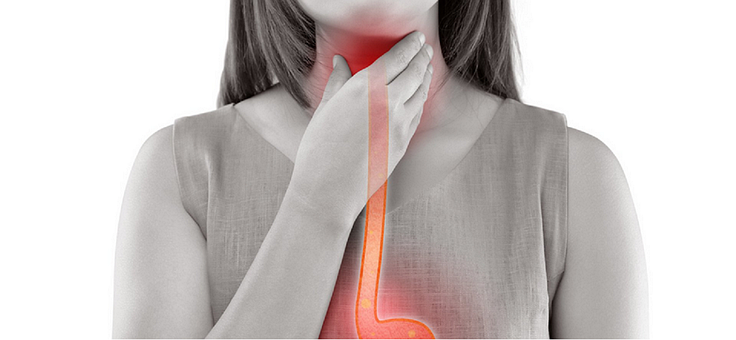Things To Know About Treating Hypertension

Did you know hypothyroidism,
a common endocrine disorder, affects roughly 10% of the American population?
Statistics also show that
about 12% of women and 2% of men are at risk of developing hypothyroidism as they age. Research
shows that up to 60% of the
people with the condition are unaware of it before an online doctor reveals the cause
behind their deteriorating health conditions.
Hypothyroidism not only impacts the thyroid gland but can also cause some other health problems,
such as hair loss, weight gain and depression. This happens due to an underactive thyroid gland,
which secretes excessive amounts of hormones affecting the heart and nervous system.
However, diagnosing hypothyroidism is often difficult because it can resemble other medical
problems. Many people are misdiagnosed, leading to more complications in the future.
Let's have a look at what hypothyroidism is, its symptoms and complications, and how it can be
treated
What Is Hypothyroidism?
The thyroid gland is located in the neck, just below Adam's apple. It is a butterfly-shaped gland that is part of the endocrine system, which also includes the pituitary gland, parathyroid glands and adrenal glands. The thyroid controls several aspects of metabolism and growth, but it is most well known for controlling body temperature.

The thyroid gland produces two major hormones: thyroxine (T4) and triiodothyronine (T3). T4 is converted to T3 inside the thyroid gland and then circulated through the body through blood. When T3 levels are low, it can cause symptoms of hypothyroidism.
Hypothyroidism may be caused by several different factors, including:
- Hashimoto’s thyroiditis
- Medications (e.g., lithium)
- Pituitary disorders
- Iodine deficiency
- Surgical removal of the thyroid gland
- Radiation treatment
- Excess alcohol consumption
- Genetic factors
Symptoms Of Hypothyroidism

The symptoms of hypothyroidism can vary from person to person and range from mild to severe. The most common symptoms of hypothyroidism include fatigue, weight gain, and concentration problems. If left untreated, hypothyroidism can lead to an increased risk of heart disease, infertility, and osteoporosis.
Here are some signs you may have a thyroid problem:
- Fatigue
- Weight gain or trouble losing weight
- Hair loss or coarse, dry hair
- Dry, rough pale skin
- Cold intolerance
- Muscle cramps and frequent muscle aches
- Constipation
- Depression
- Memory loss
- Abnormal menstrual cycles
Treatment and Natural Remedies For Hypothyroidism
1.Have Foods Rich in Iodine
Iodine is an important mineral for the production of thyroid hormones and can help manage hypothyroidism. Fish, seafood, milk, yogurt, eggs and saltwater plants are some food items enriched with iodine.
2.Consume Selenium-Rich Food Items
Selenium is a mineral that helps prevent thyroid changes and keeps cancer cells from developing. Brazil nuts, tuna, halibut, cod, turkey and chicken are all foods rich in selenium.
3.Intake Of Vitamin D-rich Foods
Vitamin D is used to treat hypothyroidism as it stimulates the thyroid gland and thus increases the functioning of thyroid hormone. A walk in the sun or consuming foods like mushrooms, fish and egg yolk can help increase vitamin D absorption
4.Have Foods Rich in Zinc
Zinc also helps treat hypothyroidism effectively as it helps in regulating thyroid hormones production. Oysters, spinach, beans and whole grains containing a high amount of zinc can be added to one's diet to get relief from hypothyroidism symptoms.
5.Avoid Foods Rich In Goitrogens
Goitrogens are substances that hinder the absorption of iodine by your thyroid gland. Consuming
foods rich in goitrogens can harm your health. Some examples include soy products (tofu, soy
milk, etc.), cruciferous vegetables (broccoli, cabbage, cauliflower and Brussels sprouts),
millet, cassava, peanuts and pine nuts.
The best way to avoid these foods is to read labels carefully before buying any processed food
at the grocery store or ordering food at a restaurant. You should also check with your online
doctor to see if there are any other foods you need to avoid to restore normal thyroid function.
6.Avoid Fluoride
Fluoride is added to public drinking water and toothpaste in many countries as a preventative measure against tooth decay. However, excessive fluoride has been linked to hypothyroidism in some individuals. This is why primary doctors and general practitioners recommend using non-fluoridated toothpaste and drinking RO-filtered water.
Managing Hypothyroidism With Thyroid Hormone Medications

Although there is no cure for hypothyroidism, the symptoms can generally be managed with medication.
The most common treatment is levothyroxine, a synthetic version of the thyroid hormone thyroxine (T4). This drug replaces the thyroid hormone that is normally produced by the thyroid gland. Its dosage must be adjusted based on regular blood testing of the TSH level to ensure that it remains within a normal range.
It's important to not consume this medication without speaking to our online doctor first.
Once you start taking levothyroxine, you'll probably need lifelong treatment and periodic blood tests to check your response to therapy. If you're receiving treatment for hypothyroidism, talk to our virtual doctor about whether it's safe for you if you're pregnant or breastfeeding.
Why Choose TelMDCare?
Reach out to the expert doctors online at TelMDCare as we offer virtual healthcare services for chronic diseases like hypothyroidism at a discounted price of $39 only. Our online doctors also specialize in treating other chronic conditions, including acid reflux, high cholesterol, hypertension, and diabetes.
So, book your virtual healthcare appointments today or visit our website to learn more about our services.